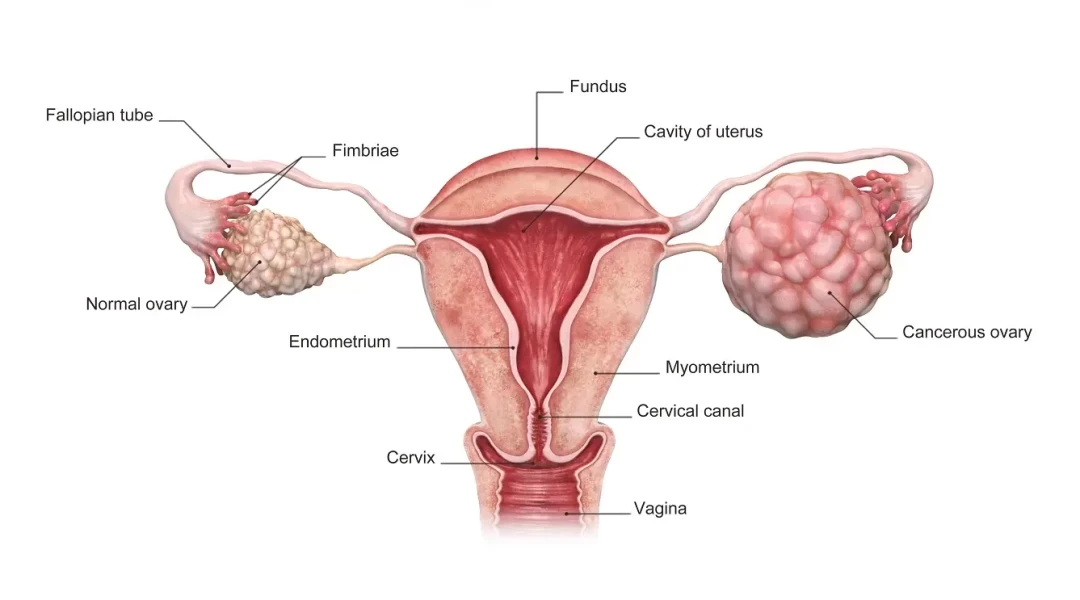
Ovarian cancer is a type of cancer that begins in the ovaries, which are part of the female reproductive system. It is often referred to as a "silent killer" because it can be challenging to detect in its early stages and tends to spread before causing noticeable symptoms.
Here is an overview of ovarian cancer, including its cause, symptoms, prevalence, diagnosis, treatment, and prognosis:
– Prevalence
Ovarian cancer is less common than some other cancers, but it is one of the deadliest gynecological cancers. It is more frequently diagnosed in developed countries. The lifetime risk of developing ovarian cancer is relatively low, but the risk increases with age.
The exact cause of ovarian cancer is not well understood, but several risk factors have been identified:
Ovarian cancer is more common in older women, with the highest incidence occurring in women over 60.
Women with a family history of ovarian cancer or certain genetic mutations (e.g., BRCA1 and BRCA2) have an increased risk.
Women who have never given birth or who had their first child later in life may have a higher risk.
Endometriosis, a condition in which tissue similar to the uterine lining grows outside the uterus, is associated with a slightly increased risk.
Long-term use of estrogen-only hormone replacement therapy (HRT) without progestin may increase the risk, especially in postmenopausal women.
Ovarian cancer is often asymptomatic in its early stages. As the disease progresses, symptoms may include:
Persistent pain, discomfort, or pressure in the abdomen or pelvis.
Frequent bloating or feeling full quickly, even after eating small amounts.
This can include constipation, diarrhea, frequent urination, or difficulty eating.
Unexplained weight loss or a decrease in appetite.
In some cases, postmenopausal vaginal bleeding.
Diagnosing ovarian cancer involves several steps:
Treatment for ovarian cancer depends on factors such as the stage of cancer, the type of cancer, and the patient's overall health. Treatment options may include:
Surgery is typically the primary treatment for ovarian cancer. It involves the removal of the ovaries, fallopian tubes, uterus, and sometimes nearby lymph nodes.
Chemotherapy involves the use of drugs to kill cancer cells or stop their growth. It may be administered before or after surgery or as the primary treatment for advanced cases.
Targeted therapy drugs target specific molecules or pathways involved in cancer cell growth.
Radiation therapy may be used in some cases to target and destroy cancer cells.
- Prognosis:
The prognosis for ovarian cancer depends on the stage at which it is diagnosed and treated. Unfortunately, because ovarian cancer is often diagnosed at an advanced stage, the prognosis can be less favorable compared to some other cancers. However, early detection and appropriate treatment can significantly improve outcomes.
Survival rates vary widely depending on the stage and type of ovarian cancer. It's important for individuals to be aware of their risk factors, pay attention to symptoms, and seek medical attention promptly if they experience any concerning signs. Early diagnosis and intervention can make a significant difference in the prognosis and survival of ovarian cancer.
Contact us today to schedule an appointment with Dr. Vindhya G


 Whatsapp Now
Whatsapp Now +918106688026
+918106688026